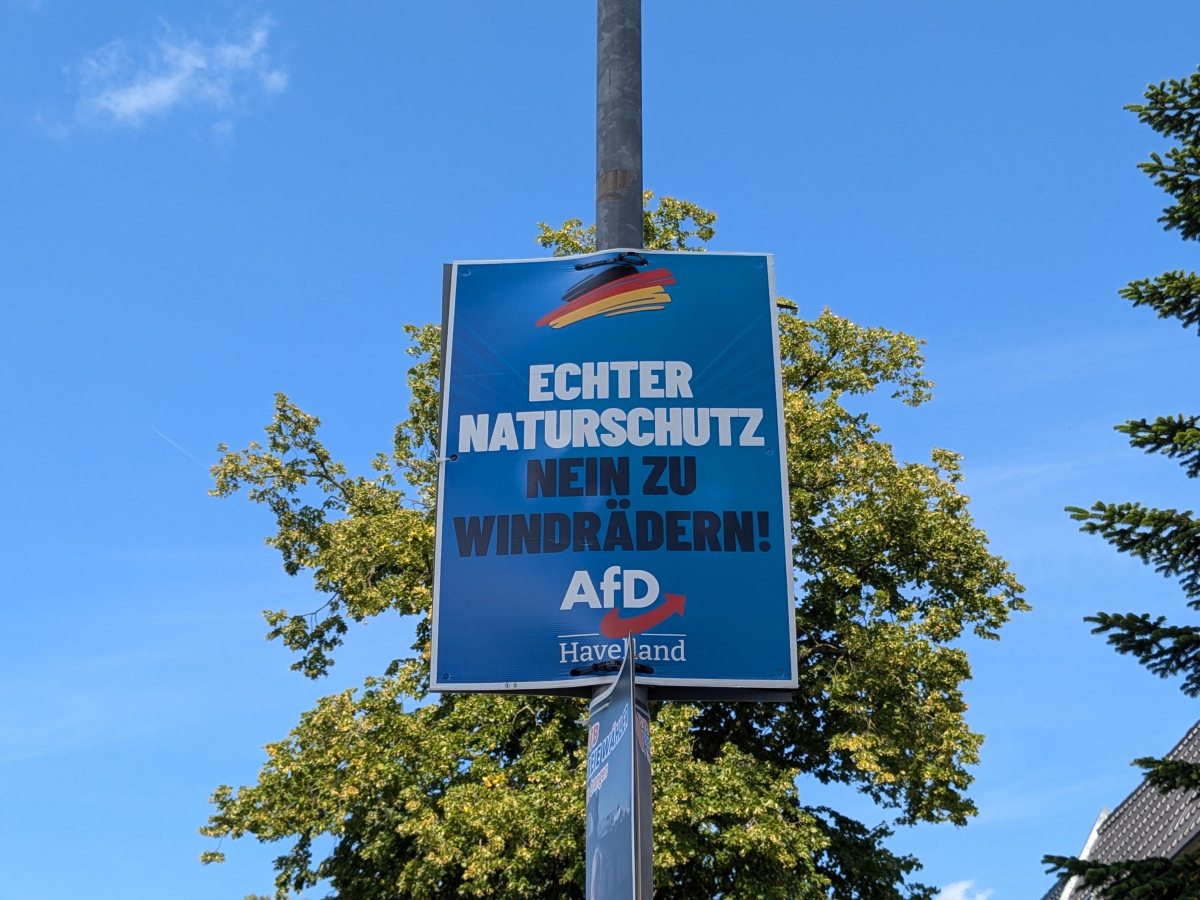Far-right extremists score big in eastern German state elections, government parties flounder
The far-right, populist Alternative for Germany (AfD) party has won big in two eastern German state elections, where voters handed the parties that make up the country’s federal government a resounding defeat.
The AfD called the closely watched state elections in the former communist eastern states of Thuringia and Saxony a “historic success,” while chancellor Olaf Scholz, a Social Democrat (SPD), said the results were “bitter” as he urged other parties not to form coalitions with “rightwing extremists.”
The AfD won almost 33 percent of the vote in Thuringia, nine points ahead of the conservative Christian Democrats (CDU), and far ahead of the three parties forming the federal government coalition, which together only scored around ten percent, according to preliminary results. In Saxony, the CDU won just under 32 percent, closely followed by the AfD with almost 31 percent, while the parties of Scholz’s federal government also all remained in the single digits. The nationalist-leftwing, anti-immigrant and pro-Russia Sahra Wagenknecht Alliance (BSW), named after its leader, drew almost 12 percent in Saxony and almost 16 percent in Thuringia, only eight months after its founding. The CDU is now facing the difficult task of forming coalitions in both states without the AfD, which it has ruled out as a coalition partner.
Bad news for the energy transition
The election results are likely to be bad news for the country’s shift to climate neutrality, according to media commentators. “The results of the state elections in Thuringia and Saxony are unlikely to be favourable for the energy transition,” wrote climate and energy newsletter Tagesspiegel Background. “Most recently, legislation on energy policy - such as the Forest Act, which virtually prevents the expansion of wind energy - has fallen behind. It is likely that the next government will tighten this policy approach even further,” it added with reference to Thuringia. Saxony’s new government is set to be led by current CDU state premier Michael Kretschmer, who has repeatedly spoken out against pulling forward the coal exit in the lignite mining state. “The results of the state elections are a shock for all democracy and climate activists,” wrote youth climate movement Fridays for Future.
Experts had warned the elections carry enormous potential for disruption in energy and climate policy. “Majorities for the further shaping of the energy transition are by no means a given,” found an analysis by research institute RLI of the party manifestos in the three states, adding that “setbacks cannot be ruled out.”
While most people in the East also support climate action and the expansion of renewables, the electoral success of the AfD and the nationalist-left BSW could hurt progress in a region that stands to benefit disproportionately from the shift towards clean energy. The eastern state votes – a third election will take place on 22 September in Brandenburg, the state surrounding the capital Berlin – take place almost exactly one year before the country’s next general elections in September 2025. Scholz’s government coalition formed of his Social Democrats, the Greens, and pro-business Free Democrats (FDP) is struggling with low popularity regarding the administration’s domestic performance and a challenging international environment marked by military conflicts and economic woes.
Energy policy overlaps between AfD and BSW
While hailing from two different ends of the political spectrum, the AfD and the BSW share strikingly similar positions in a wide range of policy areas, notably regarding their rejection of immigration, opposition to the government's climate action and energy transition policy, and their often apologetic approach towards Russia’s regime under Vladimir Putin. Both parties have called for completely resuming energy trading with Russia and reject supporting Ukraine in its defence against the Russian invasion. The AfD’s regional associations in Thuringia and Saxony have been classified as “proven right-wing extremist” by the country’s domestic intelligence agency.
BSW leader Wagenknecht has ruled out that her party would form a coalition with the AfD in Thuringia.
The eastern state election results are far from representative for the whole country. While the territory of the former GDR makes up about a third of today’s Federal Republic in total area, the share of the country’s population living there is a lot smaller. Thuringia has a population of just over two million and Saxony four million, compared with the entire country’s 84 million. Despite being reunited for more than three decades, there is still a lingering sense of separation between the two former halves of Germany. Eastern states on average have a more rural and less formally educated population than western Germany. At the same time, the region is older and has a higher youth unemployment than western states.


